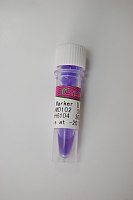Use of DNA Fingerprinting to Detect Genetic Rearrangements in Human Cancer
互联网
445
The polymerase chain reaction (PCR) has revolutionized the isolation and analysis of nucleic acid fragments from a wide variety of sources. PCR-based methods for nucleic acid detection and fingerprinting have become vital to modern molecular genetics, whether for the analysis of populations of organisms to determine population structure of an ecosystem, sampling a set of DNA sequences to infer evolutionary history, sampling genetic loci to build a map, or sampling differentially expressed genes to identify phenotypic markers. PCR can be used to generate high resolution genetic maps of human and comparative genomes. Compared with Southern blot analysis, which detects restriction fragment length polymorphisms (RFLPs) and hypervariable minisatellite loci, PCR is faster, less labor-intensive, less expensive, and requires relatively small amounts of DNA. Additionally, PCR may be a more practical approach for large-scale mapping projects.









